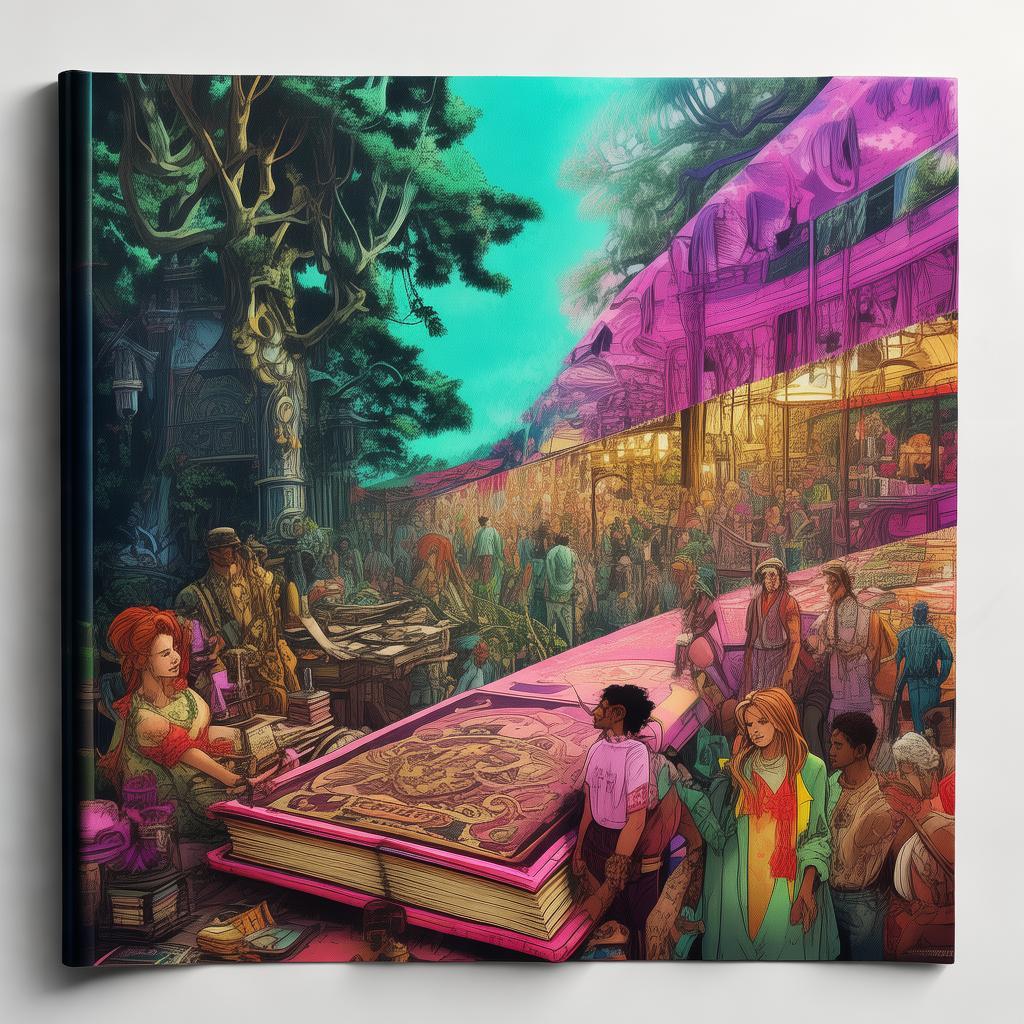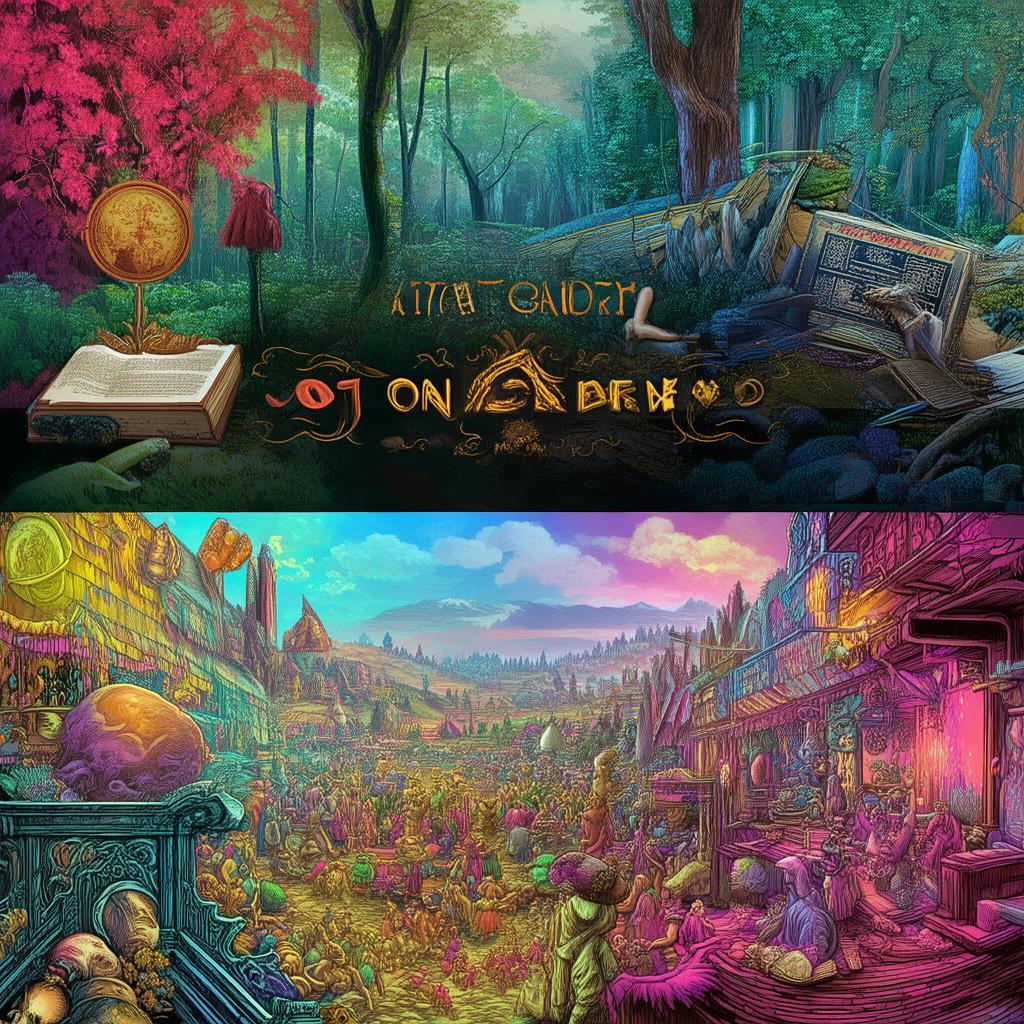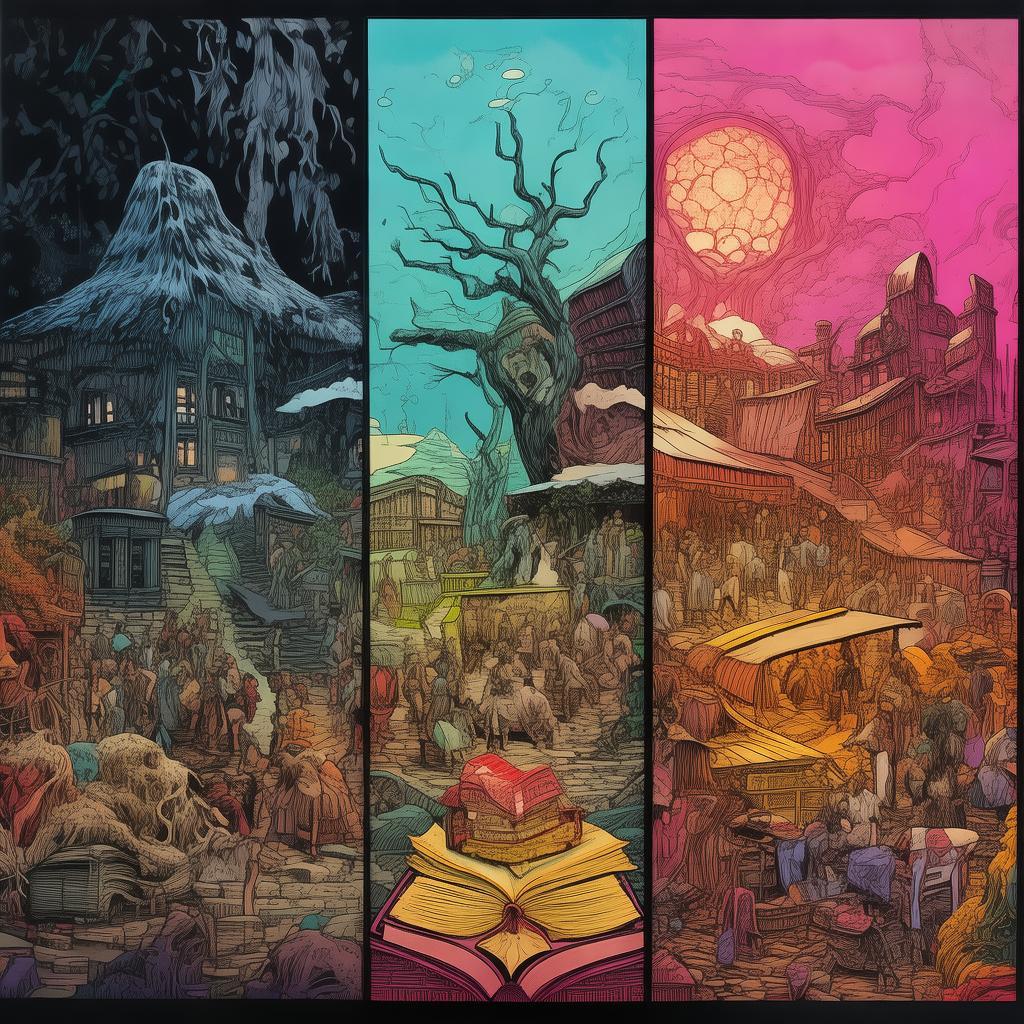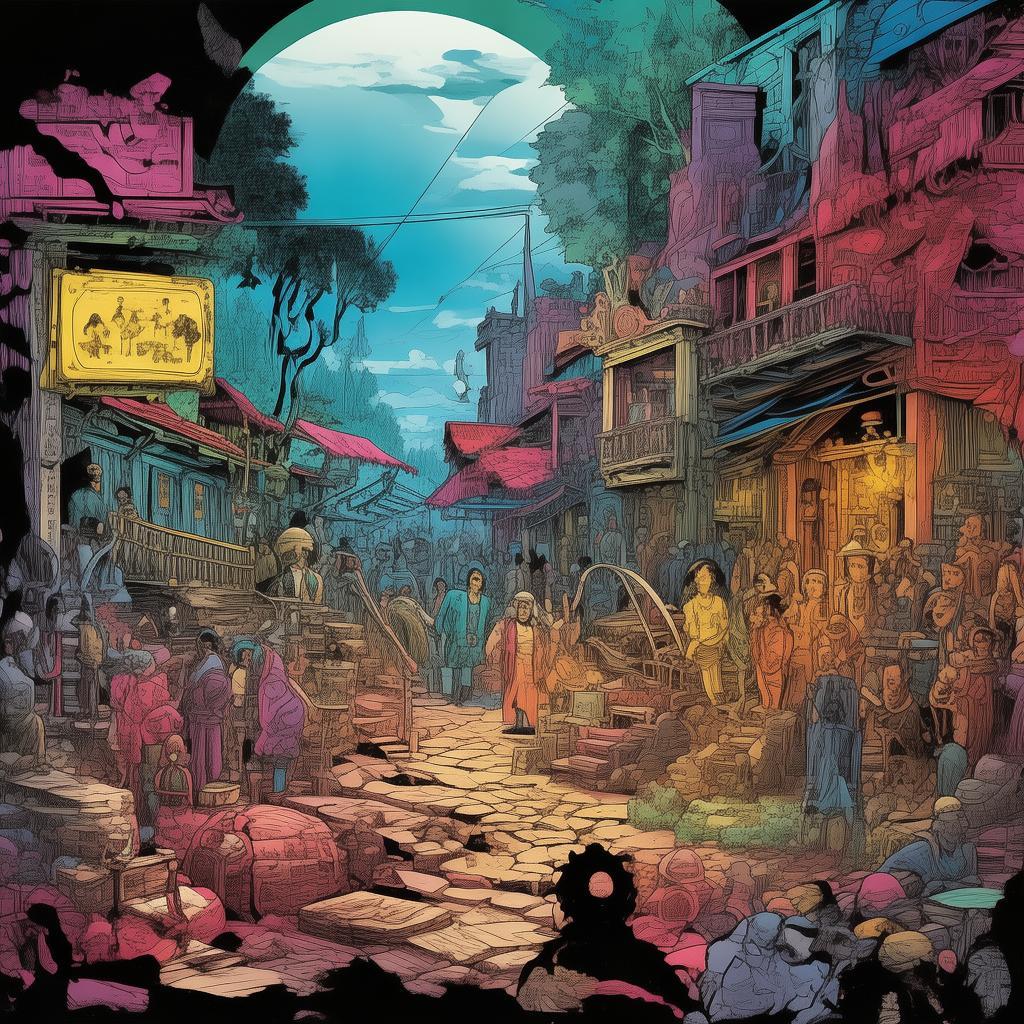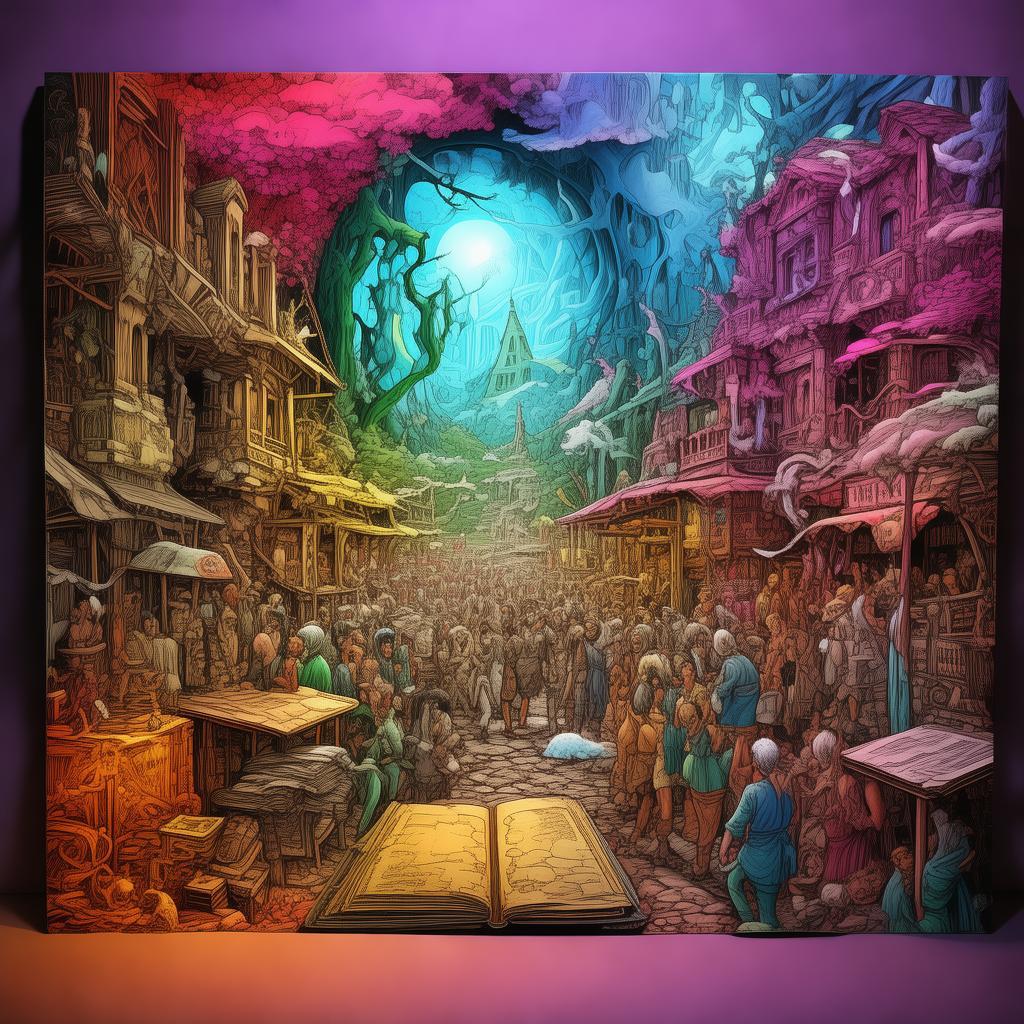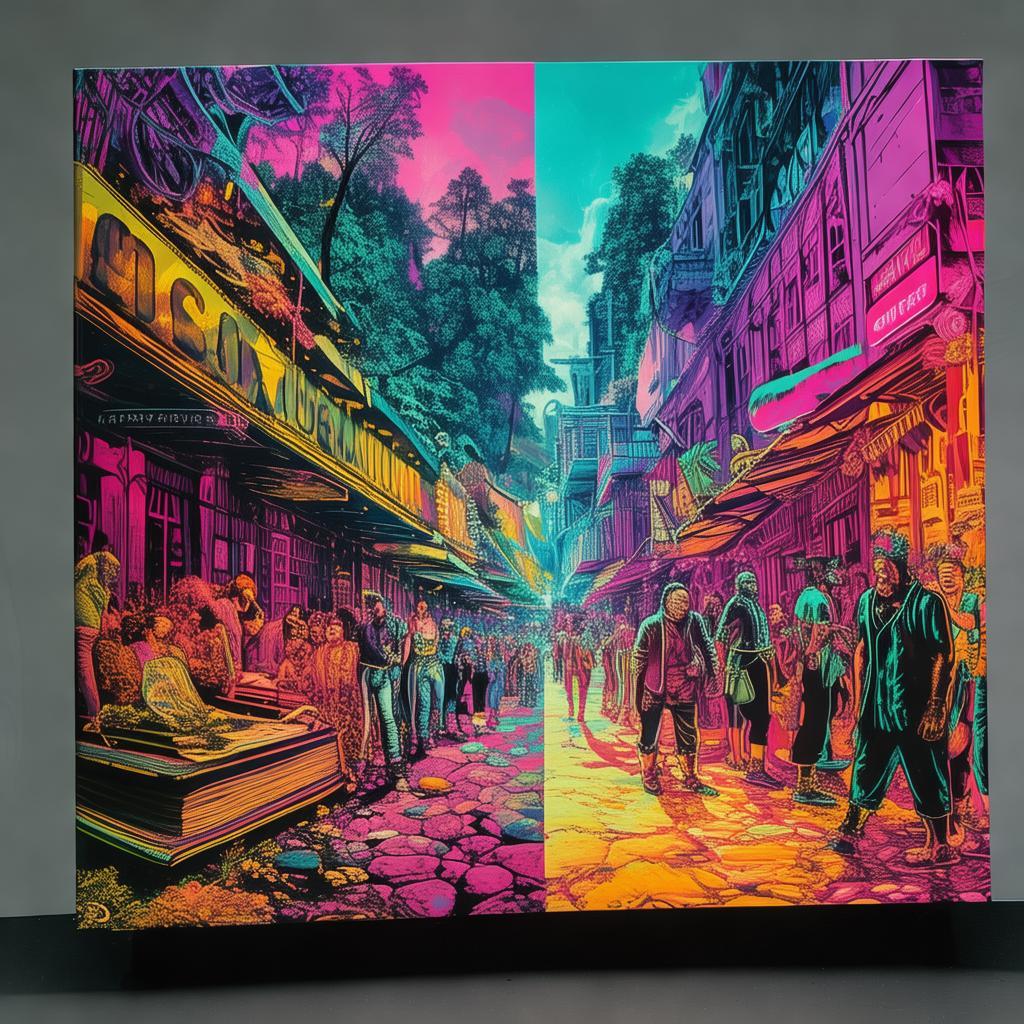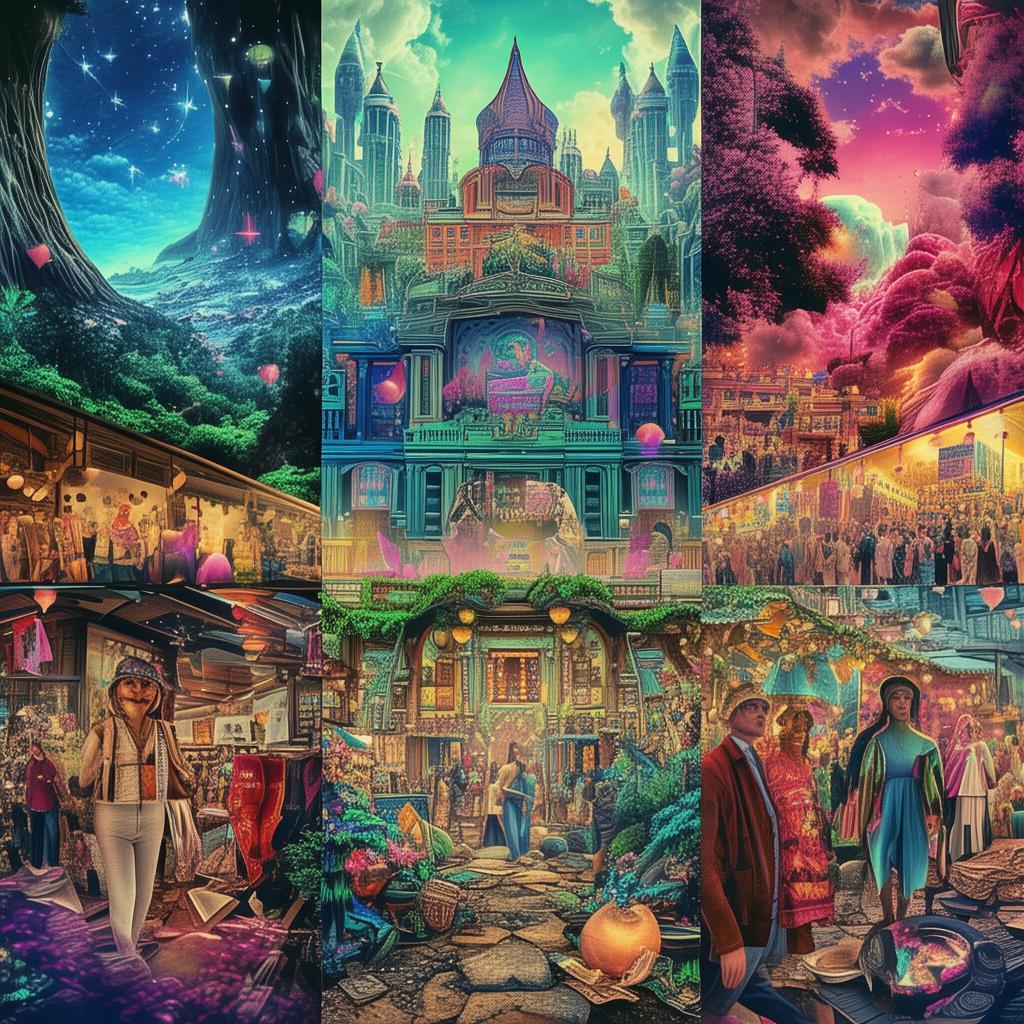The Echoes of the Lion's Roar
In the heart of a small, remote village nestled among the rolling hills of rural China, there lived a girl named Mei. She was of the Li minority, a people known for their vibrant culture and their deep respect for tradition. Mei grew up listening to the stories of the lion dance, a ritual performed during festivals to bring prosperity and good fortune to the village. Her father, an esteemed member of the village, had been the one to teach her the intricate steps and the profound meaning behind each movement.
As Mei matured, she found herself torn between the respect for her cultural heritage and the desire to forge her own path. The lion dance was more than a performance; it was a living testament to the strength and resilience of the Li people. Yet, Mei felt a disconnect from the ritual. She saw it as a symbol of her ancestors' past, not her own future.
One day, as Mei was helping her father prepare for the upcoming festival, she stumbled upon an old, tattered scroll hidden in the attic. It was a diary of her great-grandfather, who had been a master lion dancer. As she read, she learned of his struggles and triumphs, his passion for the dance, and his unwavering respect for the lion spirit. It was as if a forgotten part of her soul was awakened.
Mei realized that the lion dance was not just a tradition; it was a story of respect, a story that had been passed down through generations, a story that had the power to define her own life. She began to train with renewed vigor, her movements becoming more fluid, more expressive. She saw the lion not just as a mythical creature but as a symbol of her own inner strength.
As the festival approached, Mei's father was called away on an urgent matter, leaving her to lead the lion dance on her own. The village was abuzz with anticipation, for it was a rare occasion for a young dancer to take on such a significant role. Mei felt the weight of the responsibility, but she also felt a sense of liberation.
The day of the festival arrived, and the village was filled with color and sound. The lion, adorned with its intricate patterns and vibrant colors, roared to life as Mei stepped into its role. With each movement, she felt the spirit of her ancestors guiding her, the lion's roar echoing in her heart.
As Mei danced, she saw the villagers not just as spectators but as participants in the story. The old man who had once danced with her great-grandfather, the young child who had never seen the lion dance performed, and even the skeptical villagers who had questioned her ability to lead the ritual—all were connected through this shared experience of respect.

In the midst of the dance, Mei felt a powerful presence. It was the lion, not as a mere costume, but as a living, breathing entity that had been part of her family's history. She understood then that the lion dance was not just about the physical act of dancing but about the spiritual connection between the dancer and the lion.
The dance reached its climax, and Mei leaped into the air, her heart pounding with the rhythm of the drumbeat. In that moment, she felt the full weight of her identity. She was not just a dancer; she was a carrier of the lion's roar, a beacon of respect for her ancestors and a symbol of hope for the future.
As the villagers erupted in applause, Mei knew that she had found her place in the world. She had not only preserved her culture but had also found her own voice. The lion's roar had echoed not just in the village square but within her own soul, reminding her of the strength that comes from respecting one's roots.
The festival concluded with a sense of unity and renewal, and Mei felt a profound sense of fulfillment. She realized that the lion's roar was not just a reflection of her culture's strength but of her own. The dance had taught her that respect is not about adhering to old traditions but about embracing the past to shape the future.
In the days that followed, Mei's story spread throughout the village. People spoke of the young dancer who had brought the lion to life, who had danced with the spirit of her ancestors. The lion's roar had become a symbol of Mei's journey, a testament to the power of respect and the resilience of the human spirit.
The Echoes of the Lion's Roar was not just a story of a village festival; it was a story of self-discovery, of the intersection between tradition and individuality, and of the profound impact that respect can have on one's life. It was a story that resonated with the hearts of all who heard it, a story that would echo through generations to come.
✨ Original Statement ✨
All articles published on this website (including but not limited to text, images, videos, and other content) are original or authorized for reposting and are protected by relevant laws. Without the explicit written permission of this website, no individual or organization may copy, modify, repost, or use the content for commercial purposes.
If you need to quote or cooperate, please contact this site for authorization. We reserve the right to pursue legal responsibility for any unauthorized use.
Hereby declared.

